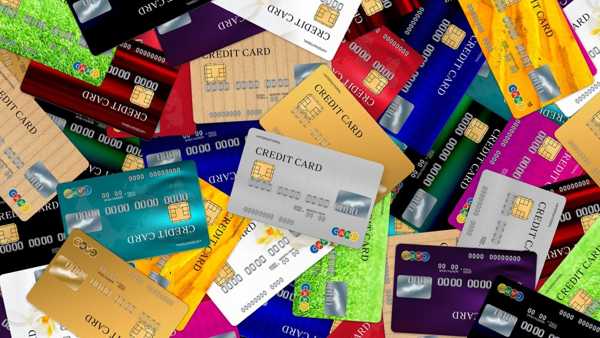雨漏り修理なら専門業者にお任せ
Understanding Personal Loans: A Practical Guide to Smart Borrowing
Personal loans are a flexible financial tool that can help you manage unexpected expenses, consolidate debt, or finance significant life events. However, understanding how personal loans work, their benefits, and when it’s smart to use them is crucial. In this guide, we’ll break down the basics of personal loans, their uses, and how to choose the right one for your needs.
Personal loans are a flexible financial tool that can help you manage unexpected expenses, consolidate debt, or finance significant life events. However, understanding how personal loans work, their benefits, and when it’s smart to use them is crucial. In this guide, we’ll break down the basics of personal loans, their uses, and how to choose the right one for your needs.

What Is a Personal Loan?
A personal loan is an installment loan that allows you to borrow a lump sum of money, which you pay back over a fixed term, typically in monthly installments. Unlike secured loans, personal loans are usually unsecured, meaning they don’t require collateral such as a house or car.
Key Facts:
Loan Amount: Typically ranges from $1,000 to $100,000.
Repayment Terms: Generally between 1 and 7 years.
Interest Rates: Can range from 5% to 36%, depending on your creditworthiness.
Approval: Based on credit score, income, and debt-to-income ratio.
How Personal Loans Work
When you apply for a personal loan, the lender will assess your financial situation, including your income and credit history. If approved, you’ll receive an offer detailing the loan amount, interest rate, repayment schedule, and term length. Once you accept, the lender will disburse the funds to your bank account, and you’ll begin making monthly payments.
Key Steps:
Application: Provide financial details such as income and credit history.
Approval: Receive an offer based on your eligibility.
Disbursement: The funds are deposited into your bank account.
Repayment: Make regular payments until the loan is fully repaid.
When to Use a Personal Loan
Personal loans are particularly useful in certain situations, but they should be used responsibly. Here are common scenarios where a personal loan might be the right choice:
1. Consolidating High-Interest Debt
If you have multiple high-interest debts, such as credit card balances, consolidating them into a single personal loan can simplify your payments and reduce the overall interest you pay.
Why it’s a good idea:
Lower overall interest costs.
Simplifies monthly payments.
Helps you pay off debt faster.
2. Home Improvement Projects
Renovating your home can increase its value, but it often requires a significant investment. Personal loans offer an alternative to using your home as collateral for a home equity loan.
Why it’s a good idea:
No need to use your home as collateral.
Fixed payments make it easier to budget.
Quick access to funds for immediate projects.
3. Covering Emergency Expenses
Unexpected expenses, such as medical bills or urgent repairs, can be overwhelming. A personal loan allows you to access cash quickly to cover these emergencies and repay over time.
Why it’s a good idea:
Fast access to funds.
Manageable monthly payments.
A solution when savings aren’t enough.
4. Paying for Major Life Events
Whether it's a wedding, relocation, or unexpected family emergency, personal loans can help you cover large, upfront expenses.
Why it’s a good idea:
Spread the costs over time.
Reduces immediate financial stress.
May be more affordable than using credit cards.
5. Building or Rebuilding Credit
If you're looking to build or rebuild your credit, responsibly managing a personal loan can help boost your credit score. Timely payments demonstrate your ability to handle debt.
Why it’s a good idea:
Improves your credit score with on-time payments.
Diversifies your credit mix.
Better loan terms as your credit score improves.
When NOT to Use a Personal Loan
Although personal loans are versatile, there are situations where they may not be the best option:
Everyday Expenses: Using a personal loan for everyday items like groceries can lead to unnecessary debt accumulation.
Speculative Investments: Avoid taking out a loan for risky investments, such as stock market speculation.
Non-Essential Purchases: If the purchase isn’t necessary, it’s better to save up instead of borrowing.
Key Considerations Before Taking Out a Personal Loan
Before you commit to a personal loan, consider the following factors:
1. Interest Rates
Compare rates from multiple lenders to ensure you get the best deal possible.
2. Fees and Penalties
Be aware of any origination fees, late payment fees, or prepayment penalties that might apply.
3. Loan Terms
Choose a repayment term that fits your budget. Shorter terms may have higher monthly payments but lower total interest.
4. Lender Reputation
Work with reputable lenders to avoid scams and unfavorable terms.
5. Your Credit Score
Your credit score will affect the interest rate and terms of your loan. A higher score typically leads to better terms.
Alternatives to Personal Loans
If a personal loan isn’t right for you, here are some alternatives to consider:
Credit Cards with 0% APR: Some cards offer 0% interest on purchases or balance transfers for a limited time.
Home Equity Loan or Line of Credit (HELOC): Ideal for larger home improvement projects if you have substantial equity in your home.
Borrowing from Family or Friends: This can be a cost-effective option for small loans.
Employer Pay Advances: Some employers offer advances on your paycheck.
Credit Union Loans: Credit unions may offer lower interest rates on smaller loans.
Conclusion: Using Personal Loans Wisely
Personal loans are a useful financial tool, but they come with responsibilities. Whether you’re consolidating debt, covering emergency expenses, or funding a home improvement project, they offer a structured way to manage large expenses. However, it’s essential to understand your financial situation, compare loan options, and ensure that the loan terms align with your ability to repay.
By using personal loans wisely, you can achieve your financial goals while maintaining control over your finances.











